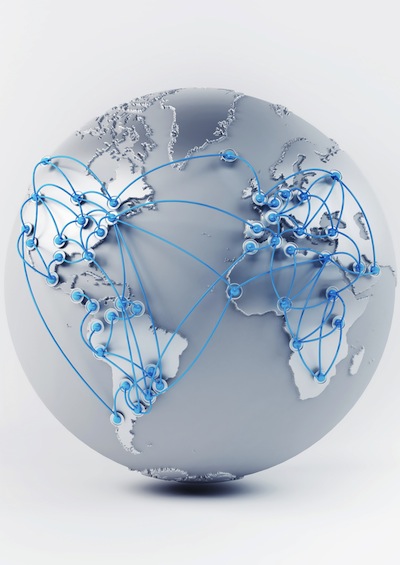Globalists and Patriots
Globalists are patriots who have a worldview that is not limited to the political boundaries of one state.
April 21, 2018

In the United States, there has been much discussion recently about “patriotism.”
What makes a patriot? Love of country? Does that translate to love of government “of the people, by the people, and for the people,” as Abraham Lincoln proclaimed in his Gettysburg Address; and government of laws and not men, of institutions?
Or is love of country focused on blood and soil, ethnic and linguistic purity, the identity of a singular culture that is exclusive of any “other” diversity, as some seem to say lately?
The issue has been bubbling up ever since Donald Trump’s candidacy for President of the United States started to shape up in earnest. To create a sharp contrast, the – now departed – Steve Bannon fashioned a strong contrast between “Americans” (=good) and “globalists” (=bad).
The underlying suggestion being that such a person can never be a “true” American. Worse, he may be a traitor, whether to the cause of the United States or that of any other nation.
The more benign view is that “globalists” in America or other countries have an allegiance not simply to the United States, or only to their native countries, but to the world. Any such internationalist must by definition betray the nation, the argument goes.
Brett Stephens, writing in The New York Times, attempted to advance the debate — by defining “globalists” by what they are not. As he put it, to be an anti-globalist requires “economic illiteracy married to a conspiracy mind-set.”
Serving a higher cause
Perhaps the most surprising answer is to see globalists as not simply self-interested and self-serving, but as serving a higher cause.
That seems to fly in the face of the common view that holds that globalists are business elites and hence insiders.
But that definition is a deliberate political construct. In his short book “After Europe,” Ivan Krastev suggests that the customary political divisions within Western democratic countries — left of center and right of center — have become very shop-worn.
Those old-line conflicts are being “replaced by a conflict between internationalists and nativists (p. 73). Furthermore, “Populists claim that they and they alone represent the people….The claim to exclusive representation is not an empirical one; it is always distinctly moral.”
What then is a “globalist”? Perhaps it is best to view globalists as “double” patriots. They care about their native countries, but are also mindful of the concerns of other countries’ governments and peoples.
Many globalists, people who may live and work abroad, are neither traitors to their homelands, nor unpatriotic.
They are patriots who have a worldview that is not limited to the political boundaries of one state.
Takeaways
Globalists are patriots who have a worldview that is not limited to the political boundaries of one state.
What makes a patriot? Love of country? Does that translate to love of government, or love of country focused on blood and soil, ethnic and linguistic purity and the identity of a singular culture?
Perhaps it is best to view globalists as “double” patriots. They care about their native countries, but are also mindful of the concerns of other countries’ governments and peoples.
Read previous

Global Diplomacy
Macron Vs. the Germans?
April 20, 2018

